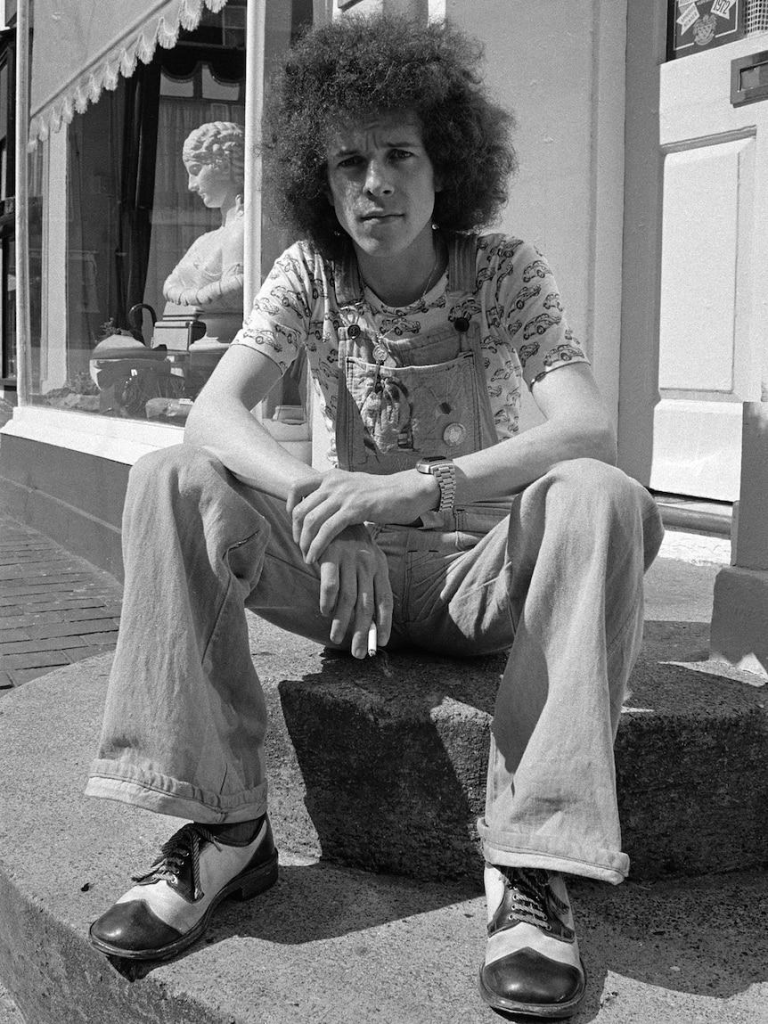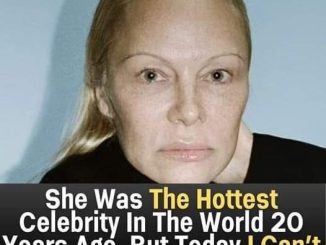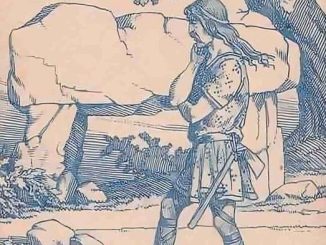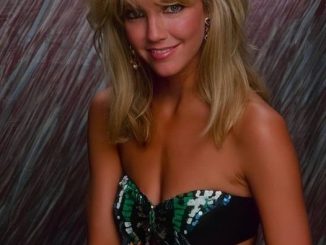“I look at my role as being a friend of Canberra Hospital, I can bring some pleasure and happiness sometimes to people who are really in difficult times in their lives.”
With backing music from a Bluetooth speaker, Sayer croons his way around the cancer wards, making a human connection with everyone he comes across.

Canberra Region Cancer Centre Operations Manager Caroline McIntyre says Sayer’s visits are typically kept a surprise for patients and staff.
“He’s always come in so discreetly,” she says.
“Normally it’s just very quiet, he comes up in the back lift and says hello to literally everybody.
“Some of them are doing it tough, and to have a little bit of joy and light – it really gives them a lift.
“What makes me happy is to see people getting chemo on their feet dancing.”
Jamming with Jimi Hendrix, Countdown and the Troubadour
Originally a graphic designer by trade, English-born Leo Sayer rose to pop prominence in London in the late 1960s, as a singer-songwriter – and was soon adopted by Australia as an honorary son after his first tour here in 1974.
He went on to become an Australian citizen in 2009.
Sayer was a regular on ABC TV’s Countdown during the 70s and 80s, performing chart-toppers like “You Make Me Feel Like Dancing”, “When I Need You”, “More Than I Could Say” and “Orchard Road”.

He blushingly admits they were wild days – when he didn’t always live up to his “good-guy” public persona.
“It was mad, I mean, Top of the Pops in England, Countdown over here,” he says.
“You were mobbed by the fans, I remember being dragged out of a limousine the first tour that I came here, and then speaking to crazy people like Molly Meldrum on TV and trying to sort of like take it all in.”
It seems hard to believe – the petite, well-spoken singer, with a mane of curly hair that inspired changing his name from Gerard to Leo – beating off mobs of screaming fangirls.
Sayer circulated in superstar company, becoming close friends with former Beatles George Harrison and Paul McCartney, collaborating with Roger Daltrey of The Who, and even sharing a sly cigarette or two with John Lennon and Yoko Ono who had a flat above his design studio.
“I met Jimi Hendrix right at the start of his career. I actually jammed with him, playing the harmonica, and him playing the guitar,” he says.
Recalling his 1975 opening night at the famous Troubadour Club in Los Angeles, he looked up to see an intimidating line-up of fans in the front row.

“It was David Bowie, Elton John, and ‘The Fonz’ [Henry Winkler].”
Alongside them: John Cleese, Mick Jagger, Bernie Taupin, and comedian Marty Feldman.
“We never thought it would last, we were adapting to things around us, writing songs about things that are around us,” he says.
“And we thought they were only for our generation — so the amazing thing is my music’s become like a fine wine, where you lay it down and years later, it becomes a collector’s item.
“We’re in an age where the music that I make, young kids are actually latching onto it now, and they’re finding that that generation and that style of music we made is as current now as anything.”
Sayer’s health battles, still spreading hope at 76
Leo Sayer says his hospital charity work caps off a career dedicated to providing joy through music.
“It’s a nice piece of synchronicity really, because I was born in the grounds of a hospital in Shoreham by Sea in Sussex, near Brighton in England,” Mr Sayer said.
“I suppose I’ve always felt comfortable in hospitals and being around hospitals.
“Growing up, my dad was a hospital engineer, Mum was a nurse, my sister was a matron.”

Sayer has health struggles of his own, including three stents in his heart, which help him have a genuine connection to the hospital patients he entertains.
“[My music] is providing something that isn’t taking away from any of the treatment that’s going on. It’s providing something that’s just putting a smile on peoples’ faces.
“Music is communication and that’s what this is all about, we’re communicating, we’re making people feel better.
“We’re not healing people with music, but we are making them feel better about their healing.
“To sell out Canberra Hospital will do me fine.”
In her youth, Hollywood celebrated her as a true beauty: With her flowing blonde hair and striking blue eyes, the actress was considered one of the most beautiful stars in the film industry
Kathleen Turner rose to fame in the 1980s, known for her captivating presence and beauty. Many consider her to be one of Hollywood’s most impressive actresses, and her resilience has helped her navigate the ups and downs of her career and personal life.
Growing up in a family of four, Kathleen faced hardships from an early age, including the sudden death of her father while mowing the lawn in Hampstead. Just a month later, her family was forced to leave the UK and moved to Springfield, Missouri, where she continued to grieve.
As an adult, Kathleen found solace in New York while pursuing acting. At first she enjoyed stage work, but her big break came in 1981 with the role of a femme fatale in “Body Heat”. A few years later, she co-starred with Michael Douglas in “Romancing the Stone”, where the chemistry between them sparked romantic feelings, even though Douglas was separated from his wife at the time.
Kathleen married real estate developer Jay Weiss in 1984 and they had their daughter Rachel Ann in 1987. However, their marriage faced challenges as they raised their child. Kathleen felt the pressure of balancing work and family, which led to feelings of guilt and oppression.

In 2005, he starred in the Broadway revival of “Who’s Afraid of Virginia Woolf?” Their marital problems worsened. Eventually, the couple divorced amicably and Kathleen received a Tony Award nomination for her role in the play.
She had a successful film career in the 1980s and received an Oscar nomination for “Peggy Sue Got Married”. However, the 1990s brought health problems when Kathleen developed rheumatoid arthritis, which caused severe pain and limited her mobility. She found herself in an identity crisis and questioned her future as an actress.
She initially turned to drugs and alcohol to cope, but after a short stay in rehab, she found that her problems were manageable with better medication tracking. Today, she practices yoga and Pilates to stay active and manage her pain.
As she grew older, Kathleen focused more on theater and returned to her roots. In her forties, she acted in productions such as Cat on a Hot Tin Roof. She also devoted herself to causes she believed in, such as volunteering for Amnesty International and Planned Parenthood.

A lifelong feminist, Kathleen Turner uses her platform to empower women and support them on their journey to independence. Her philosophies are highlighted in Gloria Feldt’s 2008 memoir, Send Yourself Roses, where she reflects on women’s empowerment. What do you think about Kathleen Turner’s inspiring journey? Share it in the comments!



Leave a Reply